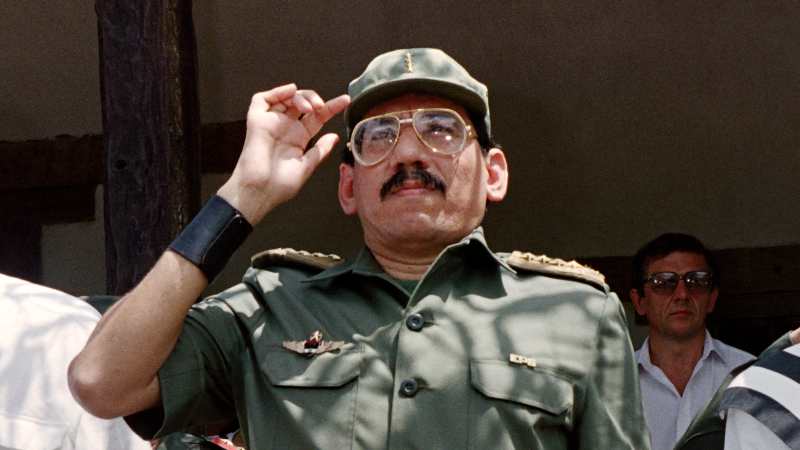Nicaragua’s president, Daniel Ortega, said Tuesday that his brother and former army chief, Humberto Ortega, who, according to exiled opponents, was under house arrest, committed an act of “treason to the homeland” by decorating a U.S. military officer in 1992.
Referring to Humberto Ortega as “the head of the army at the time,” without naming him, the Nicaraguan president described this decoration as an “act of surrender” and “national shame.”
“This inconceivable action is described as national shame in handing a Yankee military with a medal of such relevance and transcendence and obviously constitutes an act of surrender and betrayal to the homeland,” Ortega said.
This statement comes a week after Nicaraguan police installed a medical unit in the home of Humberto Ortega, a government critic, a measure interpreted as house arrest by opponents in exile.
Keep reading: Who is Humberto Ortega, the brother of President Ortega who defies Rosario Murillo?

The measure was announced by the Nicaraguan police in a statement days after the former army chief said in a press interview that Daniel Ortega, 78, lacks successors and his power will not resist a possible death.
Ortega’s government has stripped more than 300 opponents and critics of his government that he sent into exile, accusing them of “traitors” and “selling.”
A reform of the constitution approved in February 2023 and ratified this year established that persons sentenced for crimes of “treason to the homeland” will lose their nationality.
– “He had his soul given to the devil”
Retired General Humberto Ortega, head of the Army from 1979 to 1995, imposed in 1992 on the U.S. military attaché Dennis Quinn the “Camilo Ortega” medal, named after the younger brother who died in the fight against dictator Anastasio Somoza in 1978.
According to President Ortega, “the head of the army at the time committed the sacrilege of handing him over that order,” which according to reports of that time was made in recognition of a relationship of respect.
“The head of the army had already given his soul to the devil” in the 1990s, he added, when he annuls the decoration by a decree he read at the event in Managua.
Both Ortega brothers have been distanced by political differences since the 1990s.
– The controversial interview –
In an interview with the Infobae portal, published on May 19, General Ortega predicted that his brother’s environment will not be able to stay in power when he dies.
‘Without Daniel I see it very difficult for there to be about two or three to come together. Much less one in particular, and more difficult in the family. Children who have not had the accumulated political struggle. Nor Somoza was able to establish his son,” said the former military chief.
According to the press in exile, after the publication of the interview, the police visited the general’s house, south of Managua, and stripped him of cell phones and computers. The government has not spoken out about these versions.
The two brothers were part of the Sandinista guerrillas who fought the dictatorship of Anastasio Somoza, the last leader of a dynasty that ruled the country with an iron hand for four decades.
After the triumph of the revolution in 1979, Humberto Ortega became head of the Sandinista People’s Army while Daniel took over the reins of the government, first under a governing board and then personally.
Humberto continued to lead the armed institution – which changed its name to the Nicaraguan Army – until 1995 after Daniel’s electoral defeat in 1990 to opposition Violeta Barrios de Chamorro, who ruled for almost seven years.
Daniel Ortega returned to power in 2007 and has been successively re-elected in elections called into question by the international community. His wife is the powerful vice president Rosario Murillo.
This article has been translated after first appearing in El Salvador


